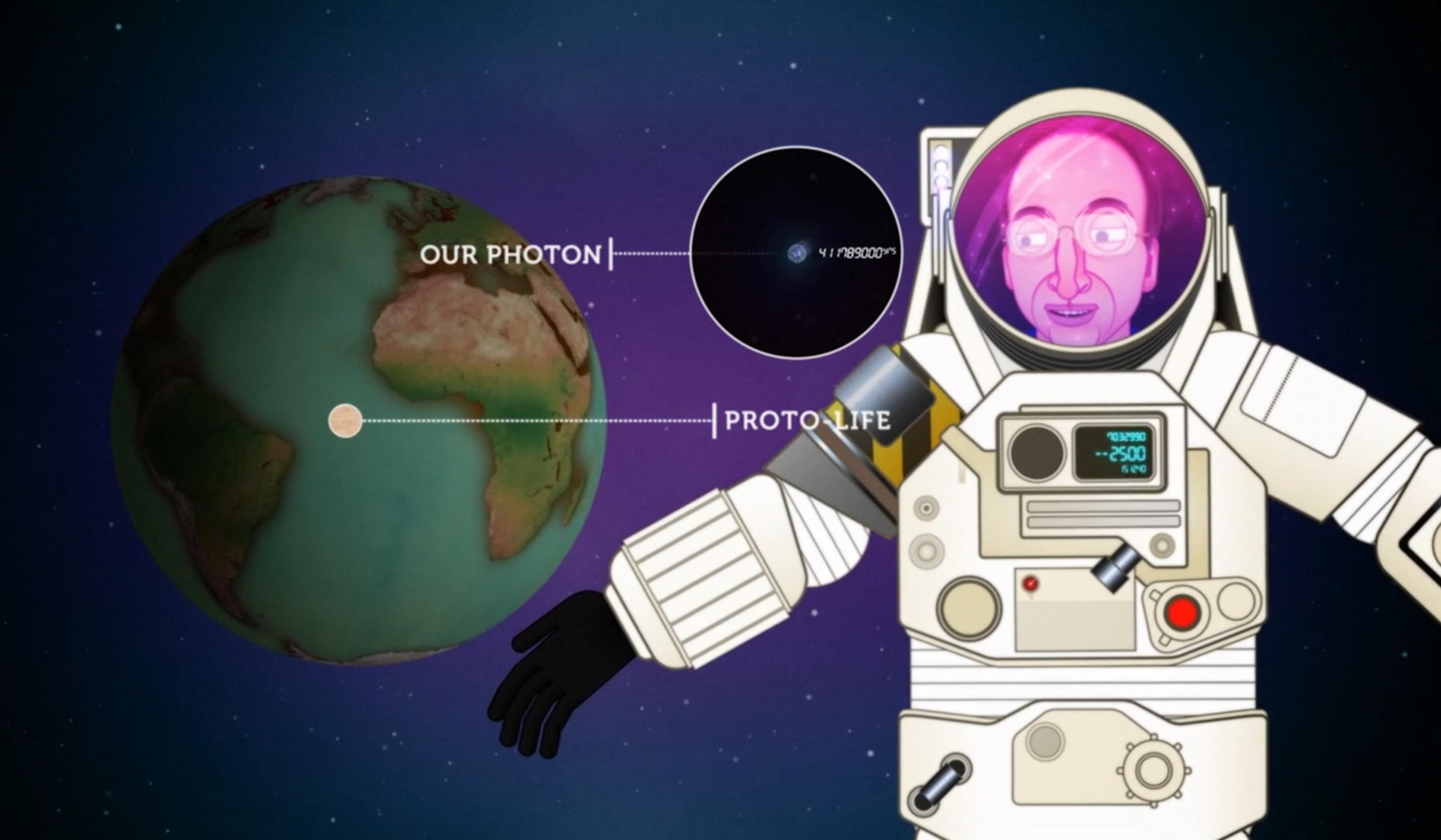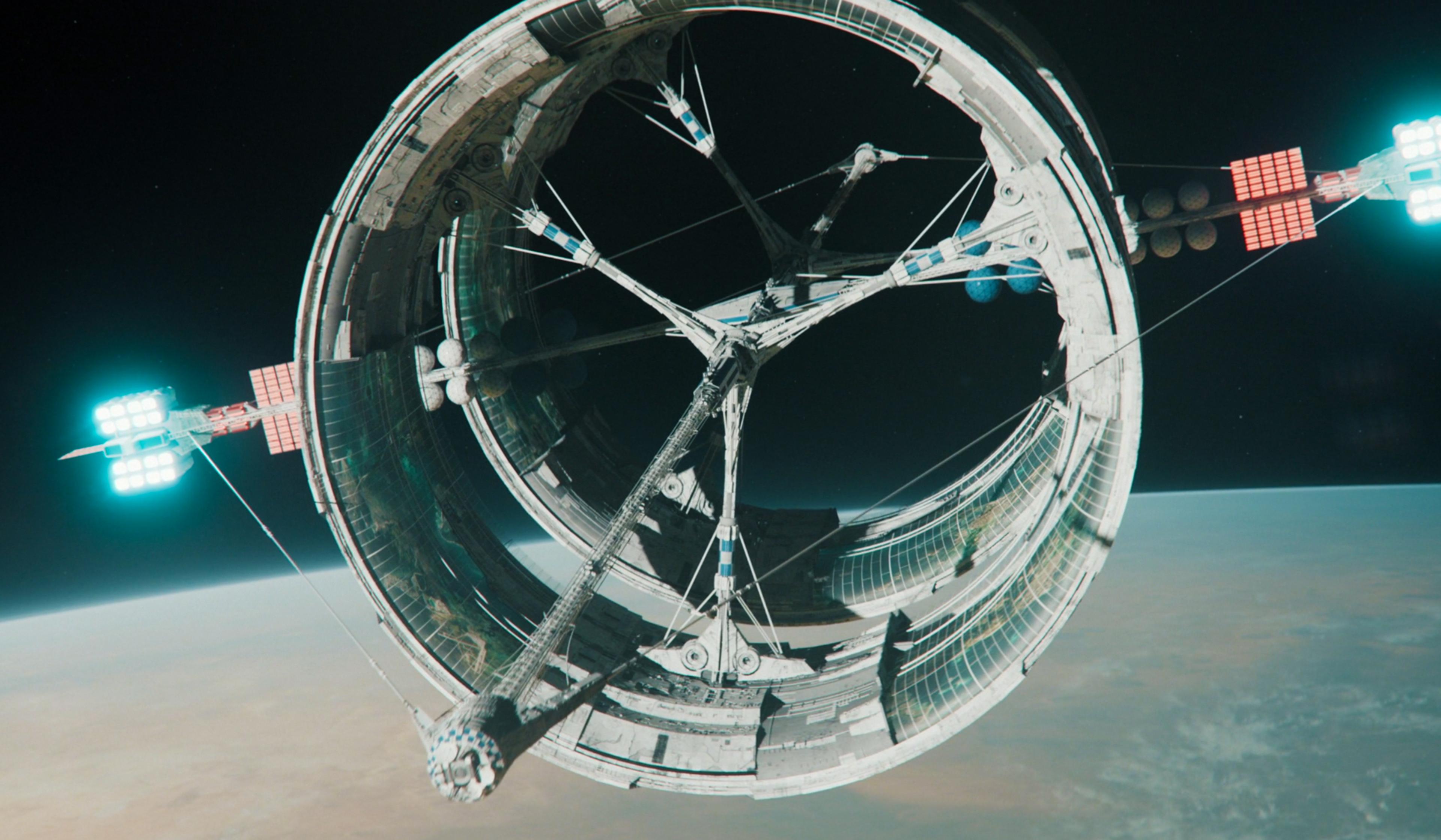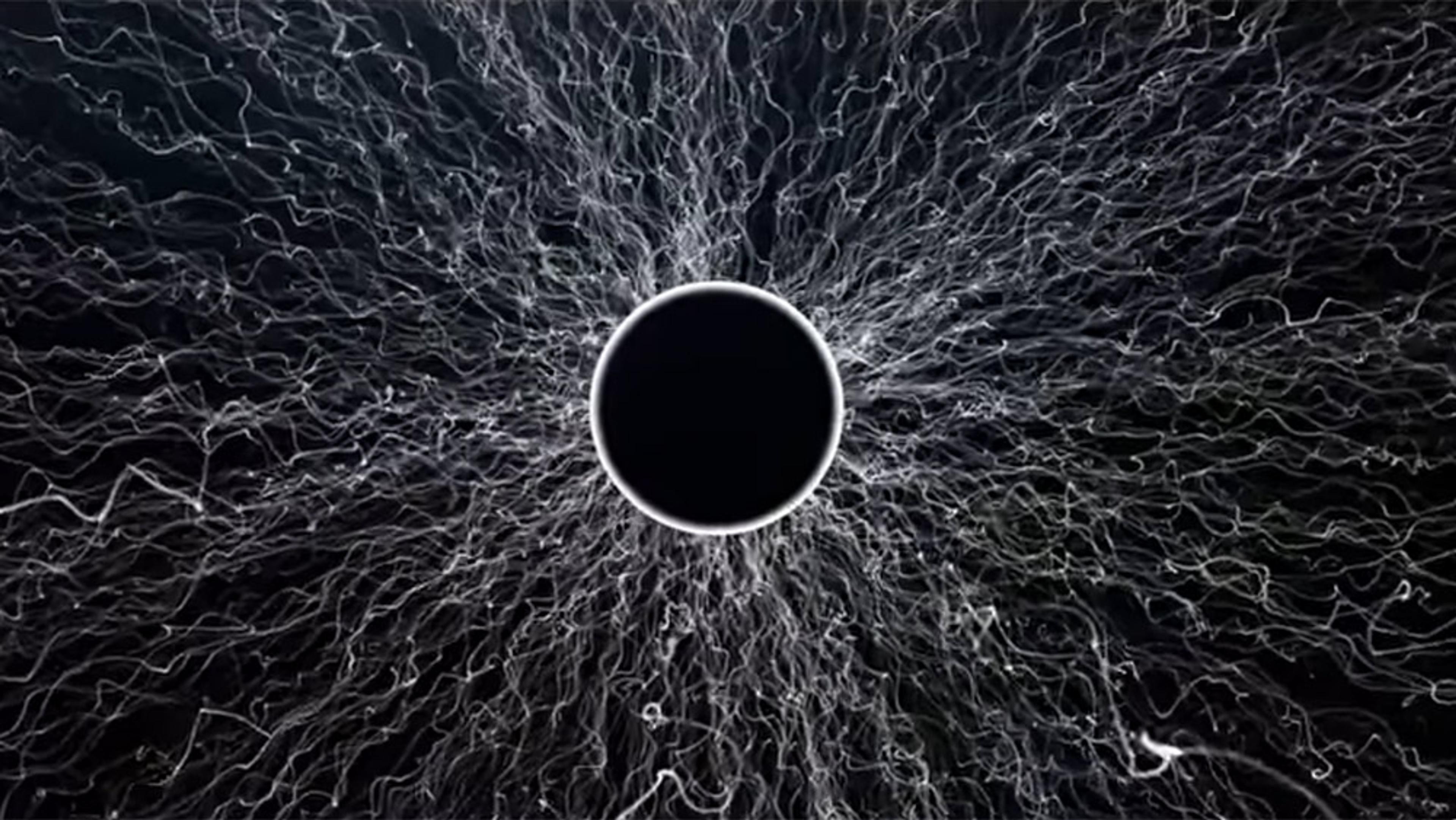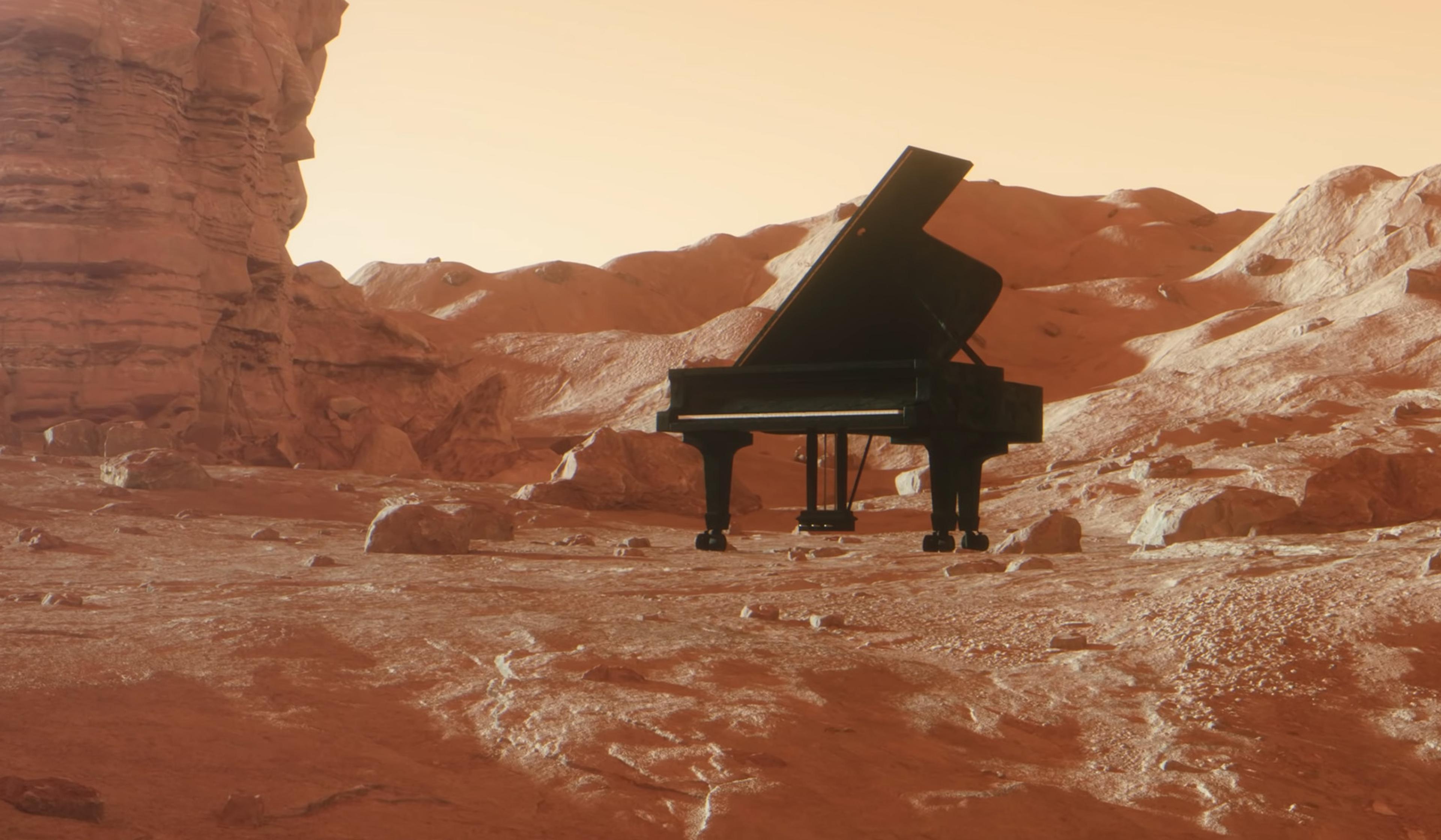According to Albert Einstein’s theory of special relativity, the speed of light (approximately 299,792 kilometres – or roughly 7.5 rotations around the Earth – per second in a vacuum) is the Universe’s speed limit, and therefore the fastest we could ever hope to travel through space. Swift as it might seem, when it comes to traversing the vast expanses between solar systems and galaxies, it’s still very slow-going. Indeed, the nearest galaxy to the Milky Way, Canis Major, is 25,000 light years away. Set to a mesmerising score by the US composer Steve Reich, Riding Light is an illuminating look at light speed, simulating the journey of a photon from the Sun’s surface to just beyond Jupiter’s orbit. For a brisker take, see a condensed, three-minute version of the same video here.
The plodding photon, or how the speed of light looks sluggish on a galactic scale
Director: Alphonse Swinehart
13 February 2017

videoAstronomy
Take a 10 billion-year journey with a photon, from a distant supernova to Earth
3 minutes

videoSpace exploration
Mind-bending speed is the only way to reach the stars – here are three ways to do it
5 minutes

videoAstronomy
Visualisations explore what the deep future holds for our night sky
6 minutes

videoCosmology
Deep time and beyond: the great nothingness at the end of the Universe
29 minutes

videoPhysics
The abyss at the edge of human understanding – a voyage into a black hole
4 minutes

videoPhysics
Our Universe has light not by chance but by necessity
59 minutes


